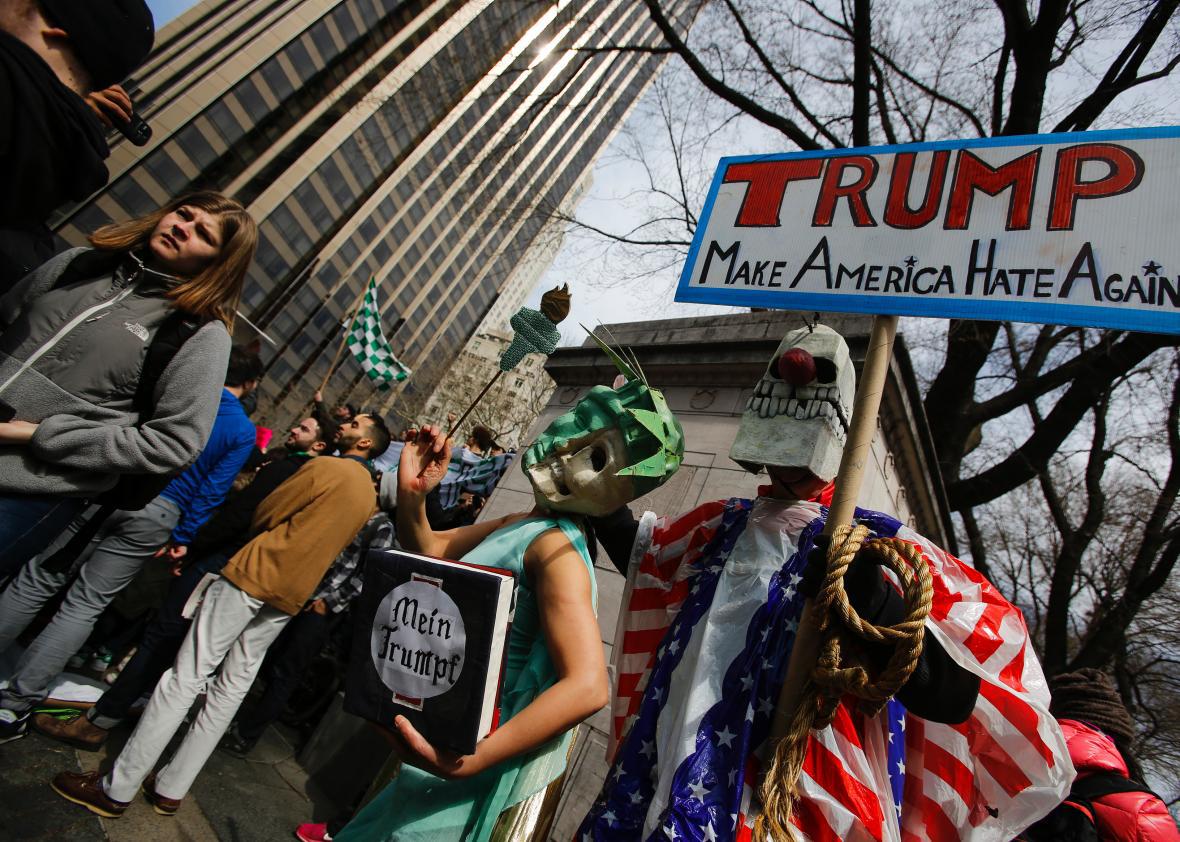Several weeks ago, in Washington, D.C., a Muslim woman was called “a worthless piece of Muslim trash” and a “terrorist” by a fellow Starbucks customer and, presumably, American citizen. After pouring something on the Muslim woman, the assaulter told her victim that she was planning on voting for Donald Trump, who would send Muslims “back to where you come from.” As horrific as this incident was, it was not unique. According to a new study from the Center for Muslim-Christian Understanding at Georgetown University, anti-Muslim hate crimes increased in 2015, coinciding with attacks in Paris and San Bernardino, California, and the rise of Donald Trump, the presumptive GOP nominee for president who has called for a ban on Muslims entering the United States.
The larger context for anti-Muslim hate crimes remains the atmosphere after the 9/11 attacks. Prior to 9/11, there were somewhere between 20 and 30 annual hate crimes committed against Muslims. Since that time, the number has increased to more than 100 annually. But 2015 was especially bad. Trump entered the race for the presidency in June. In November, Paris was attacked. In early December, San Bernardino was attacked. And several days later, Trump announced his Muslim ban proposal.
It was during December that the study saw a huge spike, recording 53 separate attacks on Muslims during this month, nearly one-third of the total in the entire year. To discuss these findings, I spoke by phone with Engy Abdelkader, the author of the report and a lawyer. “There are increasing threats of anti-Muslim violence,” she told me. “We saw this in 2015, which was perhaps the worst year in this regard since Sept. 11.” Abdelkader was careful to say that her study—based on news reports—may not be completely comprehensive, in part because some acts do not get reported. But by her count, there were 174 reported incidents in 2015, including 12 murders.
Abdelkader realizes how hard it is to pin specific acts on Trump or any other particular person or event (and the San Bernardino attacks and Trump’s rhetoric in response are especially difficult to separate), but the study does note that at least three of the chronicled incidents—in addition to the one in Washington, D.C.—were committed by avowed Trump supporters. Muslim leaders and victims of crime time and again, Abdelkader told me, relayed a strong perception that they were facing increased threats because of the heightened political atmosphere brought about by many of the Republican candidates, but “with specific references to Mr. Trump.” Whether Trump’s rhetoric is specifically causing a high number of the crimes, he is at the very least causing unease and fear in a large number of American citizens—citizens who have become even more vulnerable in the post-9/11 era.
